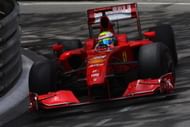“Nothing is permanent except change.”
- Heraclitus, Greek philosopher
In the context of the above, Formula One fits the bill perfectly, doesn’t it? The high speed drama, which had been restricted to the track, has now crossed over to the stands and the paddock. Teams, brands, sponsors and drivers have all come and gone in the blink of an eye, but the man who matters, the man who presides over all the decisions, Bernie Ecclestone is still there doing what he does best. Each passing season has introduced rule changes on the technical front, for the bosses and engineers to wrack their brains with (KERS and DRS for example), while simultaneous logistical changes (night races for instance) have aimed at improving the spectacle of the sport in general. Exploring new countries has also helped in this regard. This has made sure that the sport continues to grow with its new found dynamism in the coming years.
With regard to the 2014 season, some radical ideas were proposed by the FIA. These changes have drawn mixed reactions from fans all over the globe.
“Drivers and constructors to score double points in the last race of the season”, says the announcement. Let us assume that the championship leader arrives into the last round (Abu Dhabi) with a healthy 49 point lead at the top of the standings. He dominates the entire weekend, but, as fate would have it, the car gives up due to a technical issue. His closest contender takes the win, and along with it, 50 points and the title. Fair reward isn’t it, for carefully building up such a margin over the entire year? Play around with the points system and race at night – do whatever possible as long as the sport advertises itself as a “spectacle”. Fair enough.
ABU DHABI, UNITED ARAB EMIRATES – NOVEMBER 03: Nico Rosberg of Germany and Mercedes GP drives during the Abu Dhabi Formula One Grand Prix at the Yas Marina Circuit on November 3, 2013 in Abu Dhabi, United Arab Emirates. (Photo by Clive Mason/Getty Images)
What does the FIA exactly mean by their usage of the word? As I understand it, the intention is to expand the sport’s following in new markets. The usage of KERS and DRS have definitely made the sport more popular, while on the downside, they’ve also contributed in making it more artificial. Is this ‘NFS’ization helping to serve the original purpose? As often was the case in the past, where are those classic slip-stream moves these days, or the sheer pace of one car helping it blast past another, drivers in identical cars battling it out and winning their duel solely on merit? In the name of popularity, the sport seems to be crossing paths with a popular gaming franchise (a decade ago, who would have thought of an instant speed boost in F1?). Those classic features of F1 are gradually being pushed to the background every season.
This new rule is equivalent to saying that a goal scored in stoppage time of a football match be counted as two goals, or a run scored on the last ball of a cricket innings be worth twice, or a two pointer basket scored in overtime be considered a three pointer. They do seem ridiculous to think of, don’t they? The stakes are such that millions hang on that one stoppage time goal, that single run scored on the last ball of the innings, or that single point (for football, cricket and basketball respectively) scored as the clock ticks down. The margin between victory and defeat is that narrow. Maybe the concerned boards have shelved the very thought of such ideas. Perhaps, Bernie wants to be the pioneer?
Awarding double points in the final race is extremely unfair. Drivers and teams stand to lose millions of prize money, simply because someone banged them from behind, or because their car gave up in the race that matters more than the other ones. Cruel punishment indeed, for their hard work all year long.
The reason provided by the FIA is “to maximise focus on the Championship until the end of the campaign”. So does that imply the Champi0nship is boring for the entire year, and suddenly becomes interesting as we enter the last race? Oh wait! Technically, last two races as they want it to be, with identical statistics! It looks more like a move to keep the race engineers practicing their arithmetic skills during the last race rather than gauge the race situation and assist their driver accordingly.
An alternative idea suggested would be to split the final raceday into two races (each with the present points system), with the starting grid for the restart being identical to Saturday’s results. Therefore, drivers who crash out in the first race could be allowed to use the team’s spare car. Splitting of the grand prix into two races negates the impact of bad luck, and provides a chance for the unfortunate DNF drivers from race 1 to still score points. It will keep us guessing and entertained – a win-win situation.
Even if one unwillingly accepts the rule (or the suggestion), another question comes to mind. Is the track challenging enough to warrant awarding double points? Does the track test the driver’s skills and endurance like no other track can? Does it challenge the engineers to the limit? Does its name have a significant historical stand in the sport? If most of these boxes are checked, as in the case of Monza, Interlagoes, Silverstone, or Spa, then the idea is partly acceptable. Else, it feels awkward seeing one particular track (I’m not targeting Abu Dhabi in particular) with no apparent specialty or history, chosen to be twice more significant than more deserving ones.
Drivers will have to choose a permanent number (in the range 2 to 99) which they will be associated with for their entire career. Again, the idea seems copied from field sports. Apart from that, it ensures clarity in identifying drivers.
Currently, the drivers’ world champion’s team is assigned the numbers 1 and 2, while the rest of the teams, in the order of the constructor’s standings, follow consecutive numbering. Considering the changes in the sport over the years, like takeovers and name changes, it had created a confusion of sorts (especially during announcements of penalties by race control). This change will clear up things permanently. This move deserves praise.
A global cost cap is set to be introduced form 2015. As I understand, cost cutting has been prevalent in F1 for the past few seasons, and continues to be so. Considering fuel concerns, this is obviously a good sign.
The most significant change among all though, are the engines. Gone are the V8s, and in come the V6s, and with it, unpredictability for the initial few races. The playing field is all square again, and we may see an unexpected name at the top come Australia. Now, this is how the sport can be made interesting, rather than awarding double points!
People were skeptic of KERS, DRS, and night races when they were announced. Yet, the difficulties have been overcome. So maybe, even these rules, which appear artificial on hindsight, will gradually be accepted by the fan base. For the purists though, it is a matter of genuine concern as the sport appears to be moving further away from reality and more into fantasy with every season passing.

